Seemingly overnight, artificial intelligence (AI) writing became really...intelligent. As a content marketer, learning that ChatGPT was creating entire SEO articles that sound pretty close to human writing was a bit chilling.
While AI marketing has a long way to go before it could replace me, it's already quickly changing the marketing landscape, and I expect that the biggest changes are yet to come. In this guide, I'll unpack what AI marketing really means and how you can utilize it to do human-grade work, saving you time and bringing your campaigns to life (artificial life?).
Table of contents:
What is AI marketing?
AI marketing refers to all the ways AI technology can help you carry out successful marketing efforts. It mostly comprises the tools that use customer data to generate and deliver the best-targeted messages at the best times possible. But it also encompasses everything from AI creating blog outlines to chatbots that learn from their interactions.
For marketers, AI marketing saves huge amounts of time that they would otherwise spend manually analyzing data and developing targeted campaigns. For consumers, it makes it more likely that they'll see the content they like, which can either excite them or creep them out—if not both.
For example, if you're creating ideas for your ad campaign, you can use an AI chatbot like ChatGPT to produce different iterations with different copy. You can also rely on an AI tool to automate single steps, such as pulling insights on a specific topic and summarizing them for your marketing needs.
How to use AI in marketing: 8 strategies
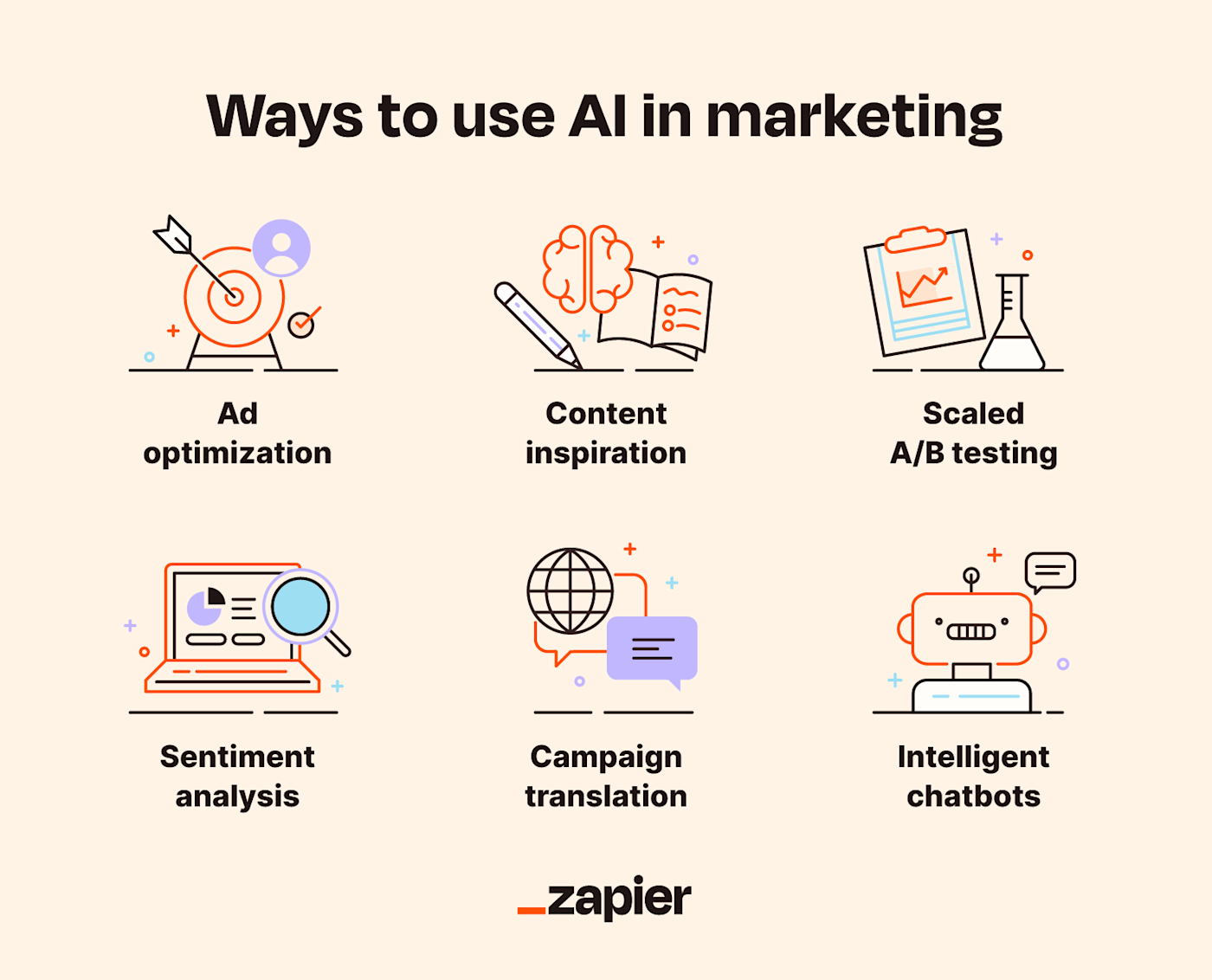
Let's get granular with AI marketing—how can you use it to improve your day-to-day initiatives? I consulted with my colleagues in marketing to compile some practical use cases for AI. In the following section, I'll also discuss some real-world scenarios applying some of them.
Ad enhancement and targeting: AI uses historical ad data to predict ad performance and help you better optimize your ads for your audience. Use that info to make your ads more relevant for your target market.
Content ideation and optimization: AI is great at pulling ideas from the corners of the internet to provide content marketing inspiration—just ask ChatGPT. It can also proofread content for grammatical accuracy and help you come up with better ways of getting the same message across.
SEO: AI can do the bulk of monotonous tasks in SEO. For example, SEO tools can analyze content for keyword density and find content gaps. You can also lean on AI text generators to create outlines for SEO content.
Scaling A/B testing: A/B testing gets tedious, especially if you have a lot of potential options. AI makes it possible to take A/B testing to A/Z testing, comparing the predicted success of several options in seconds. Leverage AI to help you choose the best option possible, whether you're testing a website layout, a snippet of copy, or a CTA.
Sentiment analysis: AI can also help you scale data collection to uncover your audience's feelings, beliefs, and desires. Utilize it to scrape the web for your market's social media posts, reviews, forum responses, and more to develop insights that guide your marketing efforts.
Making campaigns multilingual: Through neural machine translation (NMT), AI can translate text from one language to another by predicting sequences of words. Say goodbye to awkward mistranslations and loss of colloquial phrasing in multilingual marketing initiatives—NMT can identify cultural nuances and translate text to sound natural in any language. That said, don't entirely rely on NMT—my company implements it, and from our experience, it's best to have a native speaker check for accuracy, as different regions can have different cultural nuances, even within the same language or dialect.
Intuitive customer-facing bots: Everyone's been stuck online with an incompetent chatbot, wanting nothing more than to speak to a real human. Machine learning has opened the door to intelligent bots that better understand user needs and can identify whether to (and the right time to) end the chatbot conversation and transfer users to a human.
Personalization: You can use AI to analyze your customers' intent and online behavior, assess how to best respond to it, and give you insights that help create a more personalized experience.
6 examples of what AI can do for your marketing
Let's practice what we've learned. Here are some examples of ways various industries currently (or may in the future) leverage AI to improve their processes and make their customers happy.
1. Experience personalization

A video streaming service could use AI to collect user browsing and viewing data to present certain titles that are of greatest interest to the user and even predict and show which thumbnail is most likely to lead to a click.
Real-world example: Amazon Prime Video uses AI to enhance the sports viewing experience by providing in-game options such as replayable highlights and key moments.
2. Predictive lead scoring

A SaaS company might deploy AI for lead management, using lead data to qualify and rank leads more quickly. This could help the company better prioritize its sales team's time, taking extra care to foster leads with the most potential to convert. The AI tool can basically rank leads based on a specific criteria that matter to your business and organize the list accordingly.
Real-world example: Microsoft's predictive lead scoring system rates your leads based on historical data. The system leverages machine learning to generate accurate ratings and insights based on previous market shifts and inconsistencies. It's able to recognize different factors that may affect the quality of a lead and score it accordingly. A non-AI algorithm can recognize patterns and provide results based on that, but it's unable to draw the conclusions, insights, and details that the AI-powered predictive lead scoring system can.
3. Market research
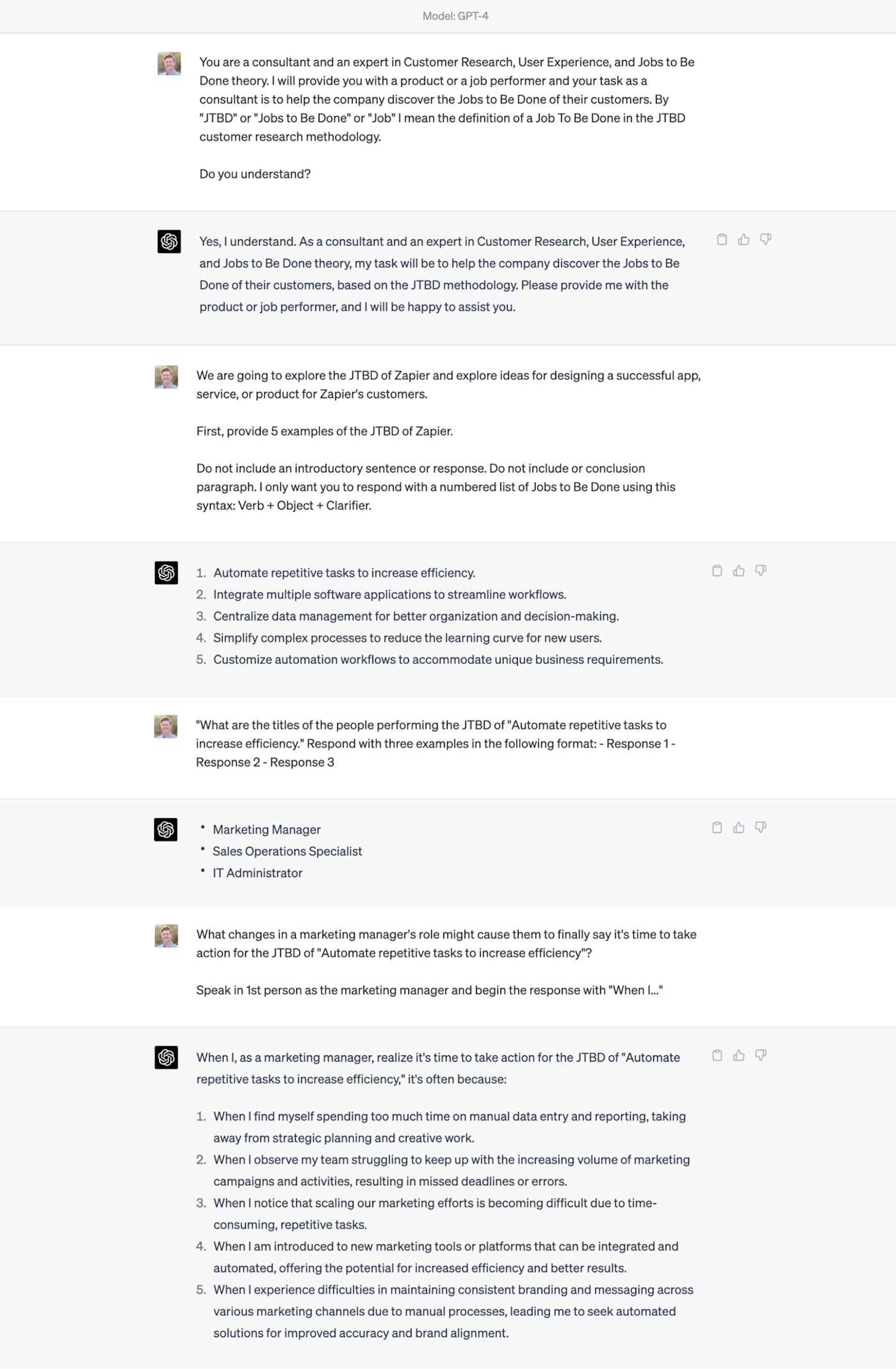
A multinational corporation specializing in snack foods could access AI data centers from around the world to acquire data on the popularity of various flavors of snack foods in every country it operates in to better inform its market research initiatives.
Real-world example: JobLens.ai uses ChatGPT to automate customer research and expedite the process. In the screenshot above, you can see how they manage to automate a complex and time-consuming task like jobs-to-be-done (JTBD) research and generate a preliminary version within minutes that would otherwise take weeks to complete.
4. Dynamic pricing
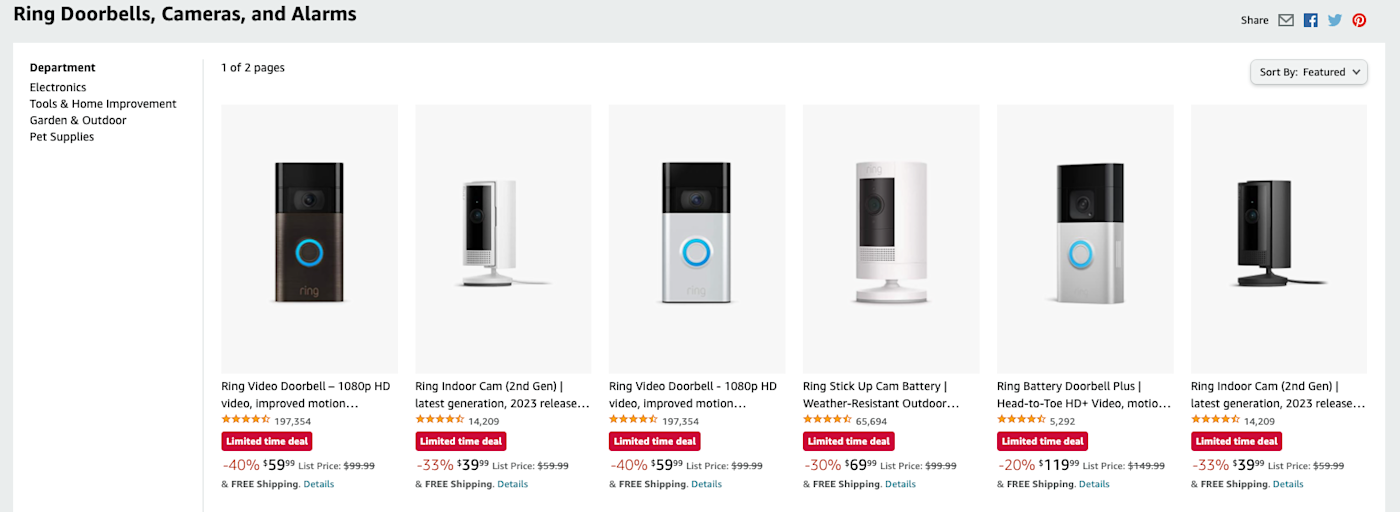
A grocery company could use AI to pull real-time competitive pricing data to adjust the prices of goods accordingly, improving its standing among the competition. Given that most grocery companies keep public records of their prices, AI's role is to pull the data, organize it, and provide visibility into pricing differences.
Real-world example: Amazon uses dynamic pricing to alter and change product prices based on demand, competition, and customer browsing habits.
5. Predictive analytics
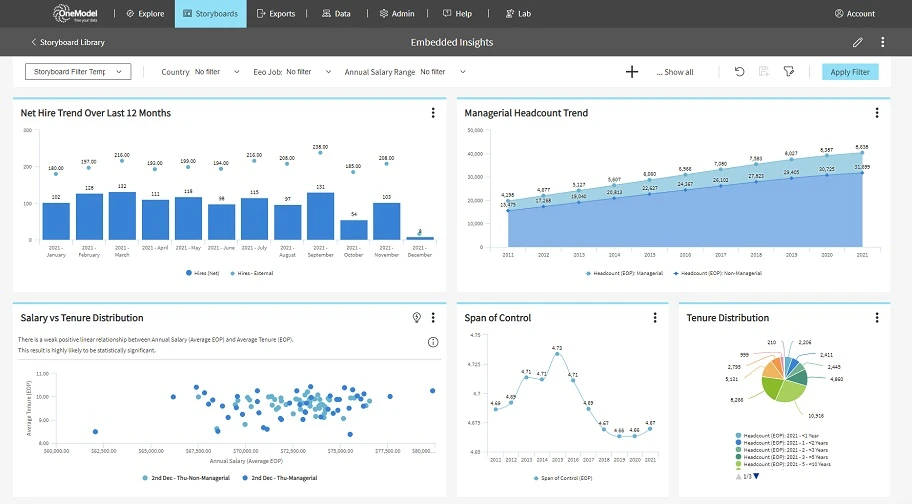
A marketing agency can leverage predictive analytics software to get ahead of the competition. This kind of analysis leverages historical data, statistical modeling, and machine learning to predict how the market will behave, giving the impression of "predictions."
Real-world example: Marketers use Scios to create digital environments for predictive user decisions and build scenarios to test data-modeled AI "motivations" in virtual markets.
6. Lead enrichment
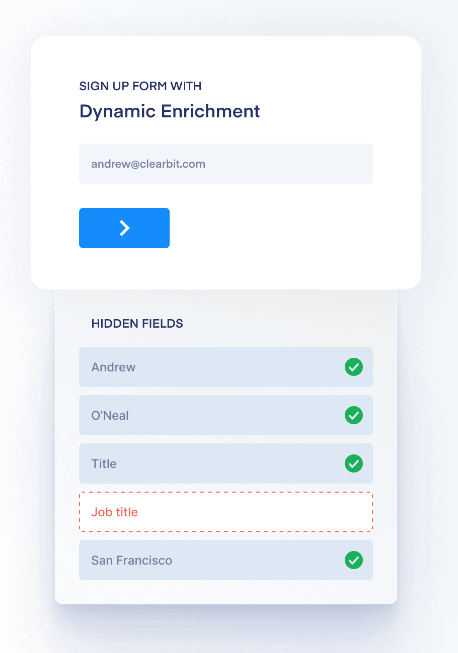
A SaaS company can implement lead enrichment processes to capture all relevant details about potential clients, including the size of their company, the technology and software they implement, and their engagement patterns.
Real-world example: Marketers and sales reps use lead enrichment to get additional information about each lead from available data points and build a detailed user profile.
Benefits of using AI in your marketing strategy
Frankly, if you don't integrate AI into your digital marketing efforts, there's a good chance your competition will leave you in the dust. AI supplements human intelligence to make processes drastically more efficient and effective than they've ever been, and it's only getting better from here.
Apart from the whole "don't get left behind" sentiment, here are some concrete reasons you should integrate AI into your digital marketing efforts.
Saves time: AI can collect user data and use it to develop insights in a fraction of the time it would take a person to do so. This frees up your team's time to focus on more important tasks, like campaign strategy development, including how to best leverage AI in upcoming campaigns. For example, it would take someone a significant amount of time to analyze a marketing campaign's performance and identify areas for improvement. An AI tool could perform that same action in seconds.
Refines your personas: Your personas should be a direct reflection of your customers and, therefore, central to your marketing campaigns. Use AI insights to improve your understanding of your customers and adjust your personas to more accurately reflect them and their needs. For example, you can use an AI chatbot or AI text generator to adjust the language and tone of your content so it speaks to your target audience. You can also use it to define these personas and identify topics and areas of interest to them.
Sparks creativity: ChatGPT may spew out some ludicrous concoction of phrases and sentences pieced together like a janky puzzle, but hey—it can certainly get the creative juices flowing. When you're at a loss for words or ideas, have AI come up with something. Even if it isn't perfect, it may provide a trailhead toward better creative ideas.
Increases customer satisfaction: AI makes it easier to anticipate user needs by learning from their behavior. The better you can meet your customers' needs, the happier they'll be. Hopefully, hearing this doesn't blow your mind. For example, you can use AI to analyze past customer concerns through post-purchase surveys or measure how users perceive your marketing efforts.
Challenges of implementing AI in marketing
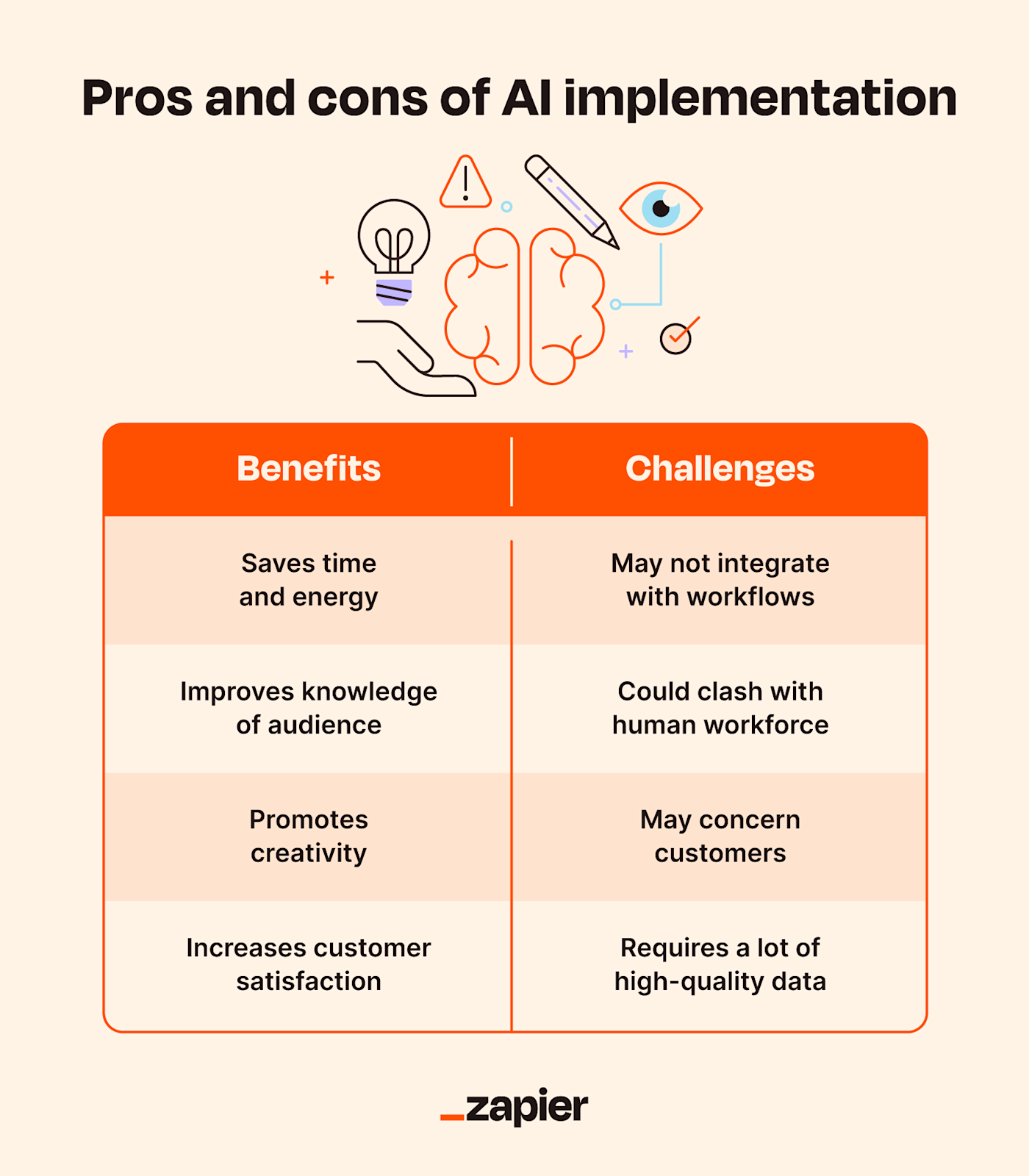
If you've had your eye on the news (or have felt that eerie sensation when the targeted ads are a little too targeted and timely), you already have an idea of why implementing AI marketing isn't always rainbows and butterflies. I'll unpack some of these challenges.
Configuration difficulties: AI implementation warrants expertise and talent. Not only must the team implementing it understand AI, but they also need to understand the intricacies of your internal tooling and how to configure AI tools for your existing workflows.
Connection with human talent: Can humans and robots coexist? Sometimes, but it isn't always easy. AI should be deployed to enhance and supplement the skills of your workforce, helping to save their time and energy (ultimately making you more profitable). That said, it could throw a wrench in existing processes and cause more harm than good if not done carefully.
Customer anxieties: If you were to poll the public asking whether they feel comfy with Big Brother watching their every digital move, I'd bet the majority would say no. AI requires collecting data from consumers' online activity and using it to draw insights. When deploying AI, be sure to respect users' data privacy wishes to avoid getting in legal and financial trouble.
Need for high-quality data: Along similar lines, AI (especially in the case of marketing machine learning) requires a lot of data and time to get good at drawing insights and making predictions. Plus, that data has to be accurate and relevant. Before implementing it, you should confirm you have access to that data (or have experts who can program AI to find it).
Choosing AI platforms for marketing
Don't get me wrong—there's no single "AI platform" that will meet all of your needs. Every platform serves a different purpose, and with the rate AI is advancing, nearly every platform will deploy AI in some shape or form in the coming years. That said, here are some important considerations to remember when choosing apps to take care of your AI marketing needs.
Identify gaps and opportunities: Would automating a certain task free up a significant amount of time? Is there a specific marketing sub-department that's lacking? Prioritize your time deploying AI in the places where it will most positively impact your bottom line and employees.
Diversify the ways you use AI: Some platforms may help with blog copy optimization, while others may help with ad campaign personalization. AI is developing at lightning speed, so always keep your eyes peeled for opportunities to expand the ways you use it.
Determine size of investment: Would deploying a certain tool require access to sensitive or expensive data? Would you need to hire new talent to make it worth it? Is the tool itself expensive? Compare these costs to the estimated benefit of investment and spend your money wisely.
Explore your options: Before you dig out the corporate credit card, make sure you do some homework and understand what each tool does. There's a lot of uncertainty surrounding AI tools and their efficiency, as not all tools work the same way. Explore available AI marketing tools within your budget, and read user reviews before buying.
Audit your current tools: Once AI began to make its impact in the marketing world, almost every app out there has since experimented with it. Check if the platforms you use have new AI-powered features.
Types of AI marketing
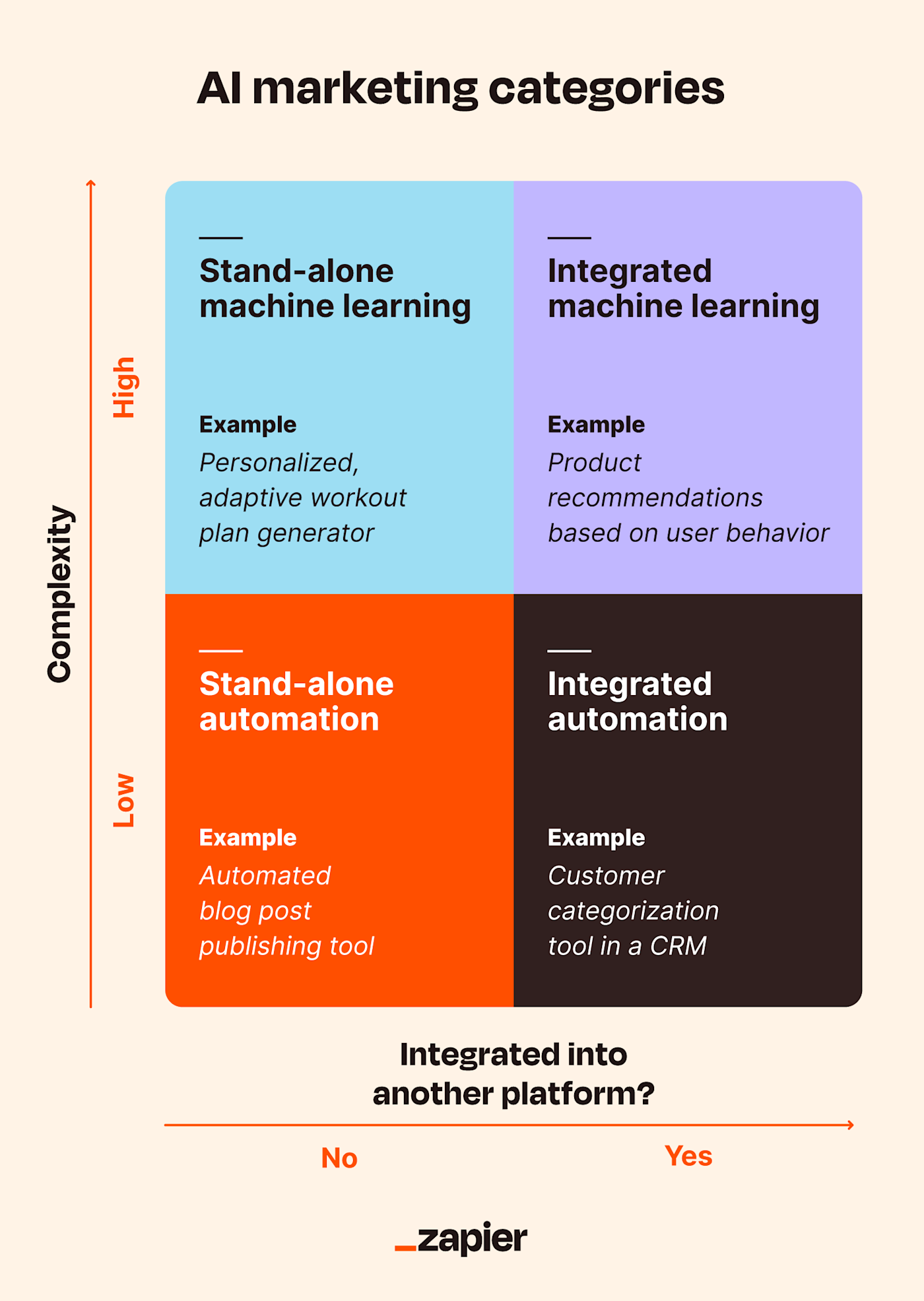
Not all marketing AI is equally powerful. Its categories can be broken down by intelligence level (from simple task automation to more complex machine learning) and composition (whether it stands alone or integrates into a program). That said, modern marketing software often blends automation and machine learning, blurring the lines between these categories.
Standalone automation apps
Automation is incredibly powerful, but it doesn't require nearly as much intelligence as machine learning programs. Standalone automation apps aren't part of a more comprehensive program like a CRM and don't "learn" from their interactions like machine learning apps. What they can do is perform automated tasks and power complex workflows.
Level of complexity: Low
Examples: Automated publishing tools that publish content on a specific schedule and chatbots that take users through a pre-set decision tree.
Integrated automation apps
Integrated automation apps also follow logic-based rules, don't learn from their interactions, and require relatively little intelligence. But unlike standalone apps, they operate within a larger system.
Integrated automation is often used in CRMs to assist with simple tasks like customer categorization based on behavior.
Level of complexity: Low
Example: If a customer subscribes to the small business version of an accounting app, the CRM could automatically label them as a small business rather than an enterprise-level organization.
Stand-alone machine learning apps
Machine learning puts the "I" in AI—it's where the real magic happens. Standalone machine learning apps operate independently and use huge amounts of data to make complex decisions. Advanced machine learning tools can even learn from user interaction to improve their predictions and decisions.
Level of complexity: High
Examples: Tools that create customized plans for users (such as a skincare routine based on facial analysis) and advanced chatbots that analyze user behavior to determine when to transfer users to a live customer service representative.
Integrated machine learning apps
You can best leverage AI when integrating machine learning with a program like a CRM or advertising tool. Integrated machine learning apps can analyze user behavior and quickly decide what to offer users.
Unlike standalone machine learning apps, the user doesn't need to request information from a separate platform—integrated apps secure the data and provide insights without being asked.
Level of complexity: High
Example: An integrated machine learning app could collect user browsing and purchasing data to provide highly targeted ads.
AI marketing FAQ
AI is complex and expensive. And it very well should be seeing as it now drives our cars, produces our art, does our marketing, and keeps our kids occupied for five-minute periods throughout the day. Here are some common questions marketing leadership may have when deciding whether and how to implement it in their processes.
How is AI used in marketing?
AI can be utilized in nearly every area of marketing. It's used to collect data, analyze that data, make decisions and predictions based on that analysis, generate personalized messages, optimize content, and more. It's like an expensive intern that does everything except make coffee.
Many people wonder if AI's benefits outweigh its lack of human touch. I wonder that sometimes, but then I sit down to watch the game and can't help but appreciate what it can do, not just by enhancing the viewing experience, but by making it so unique that it becomes my go-to streaming service.
Is investing in AI marketing good?
AI marketing is a wise investment for organizations that can afford it and that would benefit significantly from an increase in speed and the ability to deliver highly personalized content to its customers.
AI is definitely worth the investment—not only can it provide you with fresh and unique insights, but it can also save you a lot of time throughout every stage of your marketing campaign.
What's an example of an AI tool I can use in marketing?
You can use a lot of AI tools for marketing purposes. AI chatbots are particularly versatile, but other platforms like CRMs and SEO tools have built-in AI as well. Here's a list of great AI marketing tools, but honestly, most apps are incorporating AI at this point.
Add AI to your marketing tech stack
AI is rapidly changing the way organizations operate. In a matter of years, it'll be difficult to identify any field that AI hasn't touched. Don't get left behind—stay on top of the trends and integrate AI into your organization's marketing strategy.
If the tools you use don't have AI built in, you can connect them to other AI tools with Zapier. Learn more about pairing AI with automation, or get started with one of these pre-made workflows.
Write Mailchimp newsletters with ChatGPT from Google Sheets rows
Create AI-generated posts in WordPress with Claude
Create product descriptions in Jasper from new or updated Airtable records
Zapier is the leader in workflow automation—integrating with 6,000+ apps from partners like Google, Salesforce, and Microsoft. Use interfaces, data tables, and logic to build secure, automated systems for your business-critical workflows across your organization's technology stack. Learn more.
Related reading:






